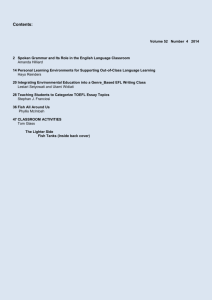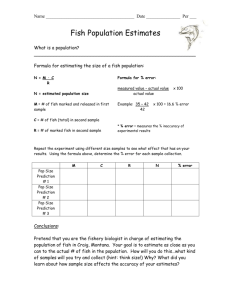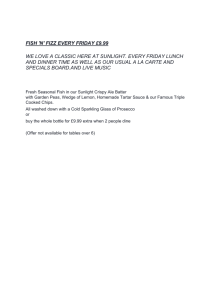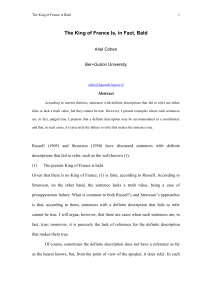2010-2011 Summer Reading
advertisement
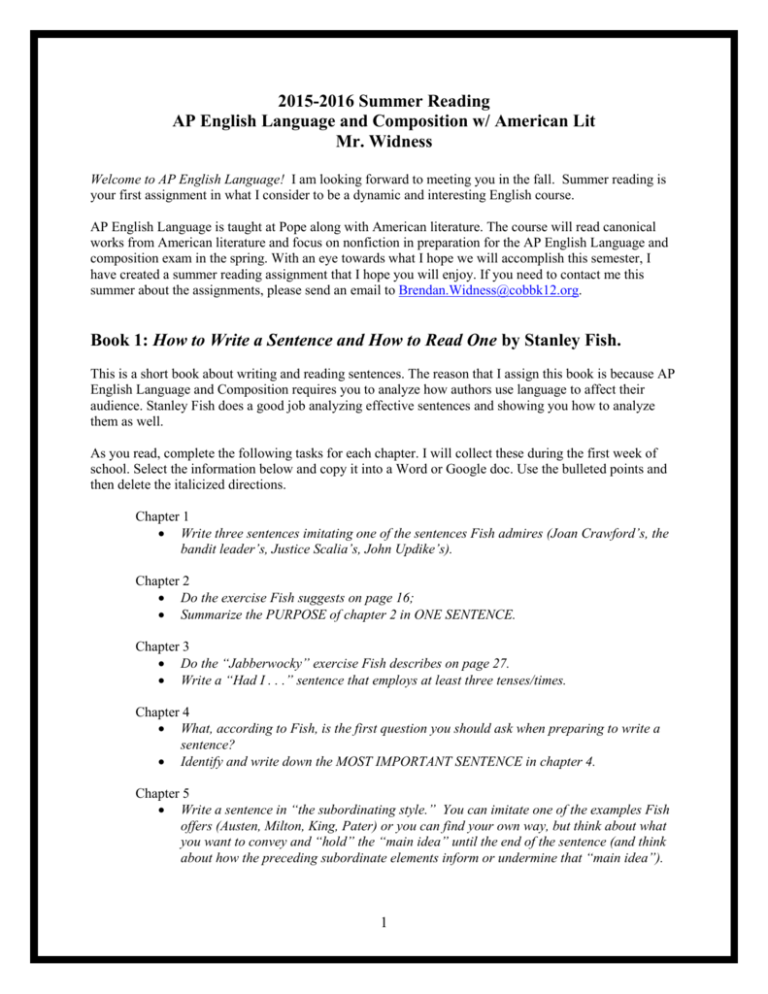
2015-2016 Summer Reading AP English Language and Composition w/ American Lit Mr. Widness Welcome to AP English Language! I am looking forward to meeting you in the fall. Summer reading is your first assignment in what I consider to be a dynamic and interesting English course. AP English Language is taught at Pope along with American literature. The course will read canonical works from American literature and focus on nonfiction in preparation for the AP English Language and composition exam in the spring. With an eye towards what I hope we will accomplish this semester, I have created a summer reading assignment that I hope you will enjoy. If you need to contact me this summer about the assignments, please send an email to Brendan.Widness@cobbk12.org. Book 1: How to Write a Sentence and How to Read One by Stanley Fish. This is a short book about writing and reading sentences. The reason that I assign this book is because AP English Language and Composition requires you to analyze how authors use language to affect their audience. Stanley Fish does a good job analyzing effective sentences and showing you how to analyze them as well. As you read, complete the following tasks for each chapter. I will collect these during the first week of school. Select the information below and copy it into a Word or Google doc. Use the bulleted points and then delete the italicized directions. Chapter 1 Write three sentences imitating one of the sentences Fish admires (Joan Crawford’s, the bandit leader’s, Justice Scalia’s, John Updike’s). Chapter 2 Do the exercise Fish suggests on page 16; Summarize the PURPOSE of chapter 2 in ONE SENTENCE. Chapter 3 Do the “Jabberwocky” exercise Fish describes on page 27. Write a “Had I . . .” sentence that employs at least three tenses/times. Chapter 4 What, according to Fish, is the first question you should ask when preparing to write a sentence? Identify and write down the MOST IMPORTANT SENTENCE in chapter 4. Chapter 5 Write a sentence in “the subordinating style.” You can imitate one of the examples Fish offers (Austen, Milton, King, Pater) or you can find your own way, but think about what you want to convey and “hold” the “main idea” until the end of the sentence (and think about how the preceding subordinate elements inform or undermine that “main idea”). 1 Chapter 6 Write a sentence in the “additive style.” You can imitate Tristram Shandy or Holden Caulfield. In your OWN WORDS, what is the difference between the “subordinating style” and the “additive style?” Imitate the sentence by Ford Madox Ford as Fish describes on pages 86-87 Imitate the Tana French sentence described on pages 87-88. Chapter 7 Write down the definition of satire that Fish quotes, then restate it in your own words. In your own words, what is Fish’s purpose in chapter 7? Chapter 8 Choose five (5) books you love. Write down the FIRST SENTENCE of each. This chapter emphasizes something that you should have realized by now: WRITERS MAKE CHOICES. Every word and the arrangement of those words are DELIBERATE. Choose ONE of the first sentences you chose and write a short paragraph analyzing its “angle of lean,” as Fish does for the sentences he includes in this chapter. Chapter 9 Go back to the books you chose for chapter 8 and include their final sentences here. Write a paragraph explaining which one is the best self-contained sentence and why. Chapter 10 Find a great sentence that is “about itself” and write it down here. If you are stuck figuring out where to find a great sentence, check the websites Fish mentions on p. 3. Book 2: The Great Gatsby by F. Scott Fitzgerald This is on the short list for the “Great American Novel.” Don’t cheat yourself by not reading this book. This novel has some important ideas and concepts that we will focus on over the course of the semester. Annotate your novel, looking specifically for good sentences. Be prepared for a test on this book during the second week of school. 2



